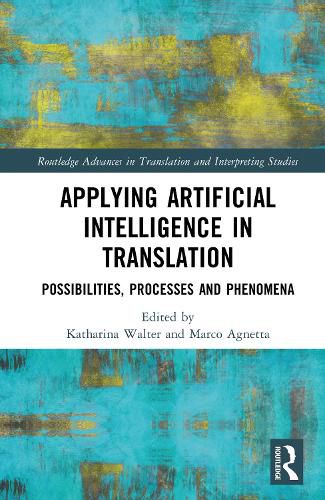Readings Newsletter
Become a Readings Member to make your shopping experience even easier.
Sign in or sign up for free!
You’re not far away from qualifying for FREE standard shipping within Australia
You’ve qualified for FREE standard shipping within Australia
The cart is loading…






This collection critically examines the opportunities and challenges associated with the use of AI-based tools in translation, which have rapidly transformed the language industry in recent years.
The volume is divided into three sections that explore the use of AI-based tools in specific domains or on specific phenomena. While the first section addresses the impact of AI-enhanced translation on both workflows and outputs from the lens of creativity and idiomaticity, the second section examines key questions concerning the use of AI-based translation tools in various domains from technology to tourism. Contributions in the third section analyse AI-induced changes in the areas of media accessibility and journalism, as well as taking a critical look at evolving job perspectives and job profiles within the language industry. Taken together, the chapters in this volume envisage sustainable forms of interaction between humans and machines that put humans at the centre of AI-induced technological changes.
This book will be of interest to students and scholars in translation studies, particularly those working in translation technology, audiovisual translation, and literary translation, as well as practising translators.
$9.00 standard shipping within Australia
FREE standard shipping within Australia for orders over $100.00
Express & International shipping calculated at checkout
This collection critically examines the opportunities and challenges associated with the use of AI-based tools in translation, which have rapidly transformed the language industry in recent years.
The volume is divided into three sections that explore the use of AI-based tools in specific domains or on specific phenomena. While the first section addresses the impact of AI-enhanced translation on both workflows and outputs from the lens of creativity and idiomaticity, the second section examines key questions concerning the use of AI-based translation tools in various domains from technology to tourism. Contributions in the third section analyse AI-induced changes in the areas of media accessibility and journalism, as well as taking a critical look at evolving job perspectives and job profiles within the language industry. Taken together, the chapters in this volume envisage sustainable forms of interaction between humans and machines that put humans at the centre of AI-induced technological changes.
This book will be of interest to students and scholars in translation studies, particularly those working in translation technology, audiovisual translation, and literary translation, as well as practising translators.